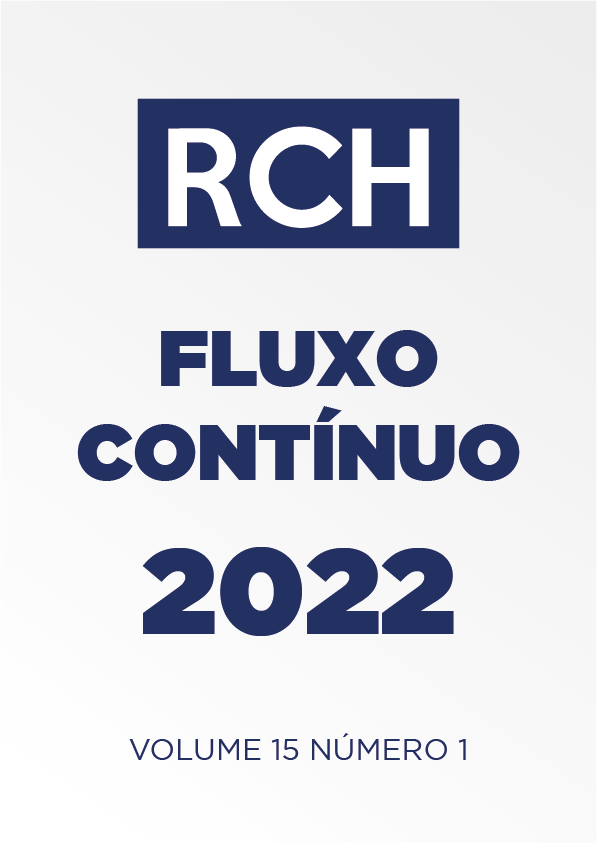ENSAIO SOBRE AS ORIGENS DO LIBERALISMO E IMPLICAÇÕES PARA O DESENVOLVIMENTO SUSTENTÁVEL
DOI:
https://doi.org/10.32813/2179-1120.2022.v15.n1.a820Palavras-chave:
Propriedade privada, Estado, Liberalismo social, Liberalismo reacionário, Desenvolvimento sustentávelResumo
Diante da emergência de diversos problemas socioambientais provocados pelo modo como produzimos riqueza no âmbito do capitalismo, intensificou-se nos últimos 50 anos o debate público e os esforços para conciliar o crescimento econômico com noções de justiça social e prudência ecológica, consolidando-se a noção de desenvolvimento sustentável. Os objetivos do desenvolvimento sustentável não têm sido alcançados pela via da auto-regulação do mercado, sendo demandada a participação dos Estados de diversas formas. Argumenta-se no presente ensaio que há duas tradições liberais: a) o liberalismo social, que reconhece a existência de imperfeições e falhas no mercado, admitindo que o Estado pode agir no sentido de minimizar ou solucionar tais falhas que não seriam resolvidas pela auto-regulação do mercado; b) o liberalismo reacionário, que não admite a possibilidade do mercado ter imperfeições e falhas e, consequentemente, rejeita a ideia de que o mercado precisa do Estado para corrigir o que quer que seja. O presente ensaio pretende debater as possibilidades do liberalismo contribuir com as pautas do desenvolvimento sustentável, a partir do resgate de contribuições dos pais fundadores e considerações sobre as diferenças entre as duas tradições liberais.
Métricas
Referências
CMMAD - Comissão Mundial sobre Meio Ambiente e Desenvolvimento. (1991). Nosso Futuro Comum. 2. ed. Rio de Janeiro: Editora da Fundação Getúlio Vargas.
Dardot, P. (et al.). (2021). A escolha da guerra civil: uma outra história do neoliberalismo. São Paulo: Elefante.
Dias, G. V., Neffa, E. & Tostes, J. G. R. (2020). Pagamentos por serviços ambientais, mercado de crédito de carbono e as trocas desiguais. Boletim do Observatório Ambiental Alberto Ribeiro Lamego, 14 (2), 235-254. DOI: 10.19180/2177-4560.v14n22020p235-254
Dias, G. V. & Tostes, J. G. R. (2009). Desenvolvimento sustentável: do ecodesenvolvimento ao capitalismo verde. Revista da Sociedade Brasileira de Geografia, 2, 1-20. Recuperado de https://www.researchgate.net/publication/266485934_Desenvolvimento_sustentavel_do_ecodesenvolvimento_ao_capitalismo_verde
Hobsbawm, E. (1995). Era dos extremos: o breve século XX (1914-1991). São Paulo: Companhia das Letras.
Hunt, E. K. & Scherman, H. J. (2000). História do pensamento econômico. Petrópolis, RJ: Vozes.
Hunt, E. K. & Lautzenheiser, M. (2013). História do pensamento econômico: uma perspectiva crítica. 3. ed. Rio de Janeiro: Elsevier.
Locke, J. (2001). Dois tratados sobre o governo. São Paulo: Martins Fontes.
Malthus, T. R. (1996). Ensaio sobre a população. São Paulo: Nova Cultural.
Marques, L. (2015). Capitalismo e colapso ambiental. Campinas, SP: Ed. Unicamp.
Santos, M. (2003). Por uma outra globalização: do pensamento único à consciência universal. 10. ed. Rio de Janeiro: Record.
Smith, A. (1996a). A riqueza das nações: investigação sobre sua natureza e suas causas. Vol. 1. São Paulo: Nova Cultural.
Smith, A. (1996b). A riqueza das nações: investigação sobre sua natureza e suas causas. Vol. 2. São Paulo: Nova Cultural.
Spencer, H. (2019). O indivíduo contra o Estado. Curitiba: Antonio Fontoura.
Downloads
Publicado
Como Citar
Edição
Seção
Licença
Copyright (c) 2022 Revista Ciências Humanas

Este trabalho está licenciado sob uma licença Creative Commons Attribution 4.0 International License.
As publicações da Revista Ciências Humanas estão registradas sob a licença Creative Commons Attribution CC-BY.
1. Os conteúdos dos trabalhos são de exclusiva responsabilidade de seu autor.
2. É permitida a reprodução total ou parcial dos trabalhos publicados na Revista, desde que citada a fonte.
3. Ao submeterem seus trabalhos à Revista os autores certificam que os mesmos são de autoria própria e inéditos (não publicados em qualquer meio digital ou impresso).
4. Os direitos autorais dos artigos publicados na Revista são do autor, com direitos de primeira publicação reservados para este periódico.
5. Para fins de divulgação, a Revista poderá replicar os trabalhos publicados nesta revista em outros meios de comunicação como, por exemplo, redes sociais (Facebook, Academia.Edu, etc).
6. A Revista é de acesso público, portanto, os autores que submetem trabalhos concordam que os mesmos são de uso gratuito.
7. Constatando qualquer ilegalidade, fraude, ou outra atitude que coloque em dúvida a lisura da publicação, em especial a prática de plágio, o trabalho estará automaticamente rejeitado.
8. Caso o trabalho já tenha sido publicado, será imediatamente retirado da base da revista, sendo proibida sua posterior citação vinculada a ela e, no número seguinte em que ocorreu a publicação, será comunicado o cancelamento da referida publicação. Em caso de deflagração do procedimento para a retratação do trabalho, os autores serão previamente informados, sendo-lhe garantido o direito à ampla defesa.
9. Os dados pessoais fornecidos pelos autores serão utilizados exclusivamente para os serviços prestados por essa publicação, não sendo disponibilizados para outras finalidades ou a terceiros.





